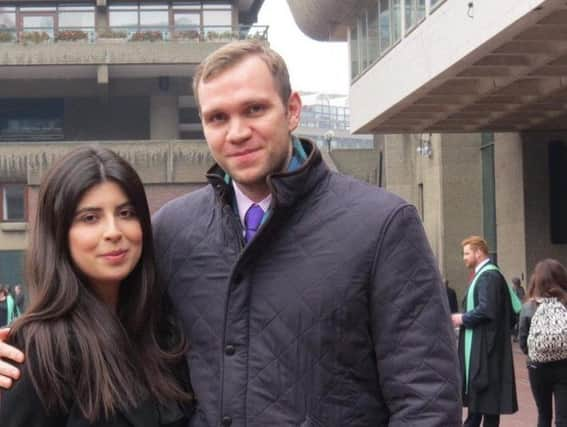'I don't resent friend who landed me in jail' - Durham academic Matthew Hedges on the person who claimed he was a spy


Matthew Hedges was sentenced to life imprisonment by the Gulf state after being accused of working for MI6, before being pardoned by the nation's president days later.
Having spent the last month back home in the UK with his wife Daniela Tejada, the Durham University PhD student said he does not resent his Emirati friend.
Advertisement
Hide AdAdvertisement
Hide Ad"He was someone I met through work and we were friends, yes. He was in court and gave evidence against me," he told The Guardian.
"It would be easy to feel anger towards him but I have no clue under what circumstance he has got in touch with the state security. I can't blame him.
"He might not have had another option. It's impossible to hold any form of resentment because he himself is a victim of the system."
Mr Hedges has previously described how he was questioned for up to 15 hours a day and forced to wear ankle cuffs during his ordeal.
Advertisement
Hide AdAdvertisement
Hide AdAlthough he was never physically tortured, the 31-year-old said he was made to suffer psychologically, and that his aggressive interrogators left him "so scared and on edge".
Mr Hedges, originally from Exeter, was arrested at Dubai Airport as he tried to leave on May 5.
His wife mounted a campaign to free her husband and Foreign Secretary Jeremy Hunt personally discussed the case with UAE leaders.
He was freed last month but officials persisted in calling him an MI6 spy - a claim denied by family and colleagues.
Advertisement
Hide AdAdvertisement
Hide AdAn official told reporters in Abu Dhabi that Mr Hedges was "100% a full-time secret service operative" who was in the country "to steal the UAE's sensitive security national secrets for his paymasters".
He said the Briton's pardon came in response to a letter from his family appealing for clemency and due to the historical close ties between the UK and the UAE.